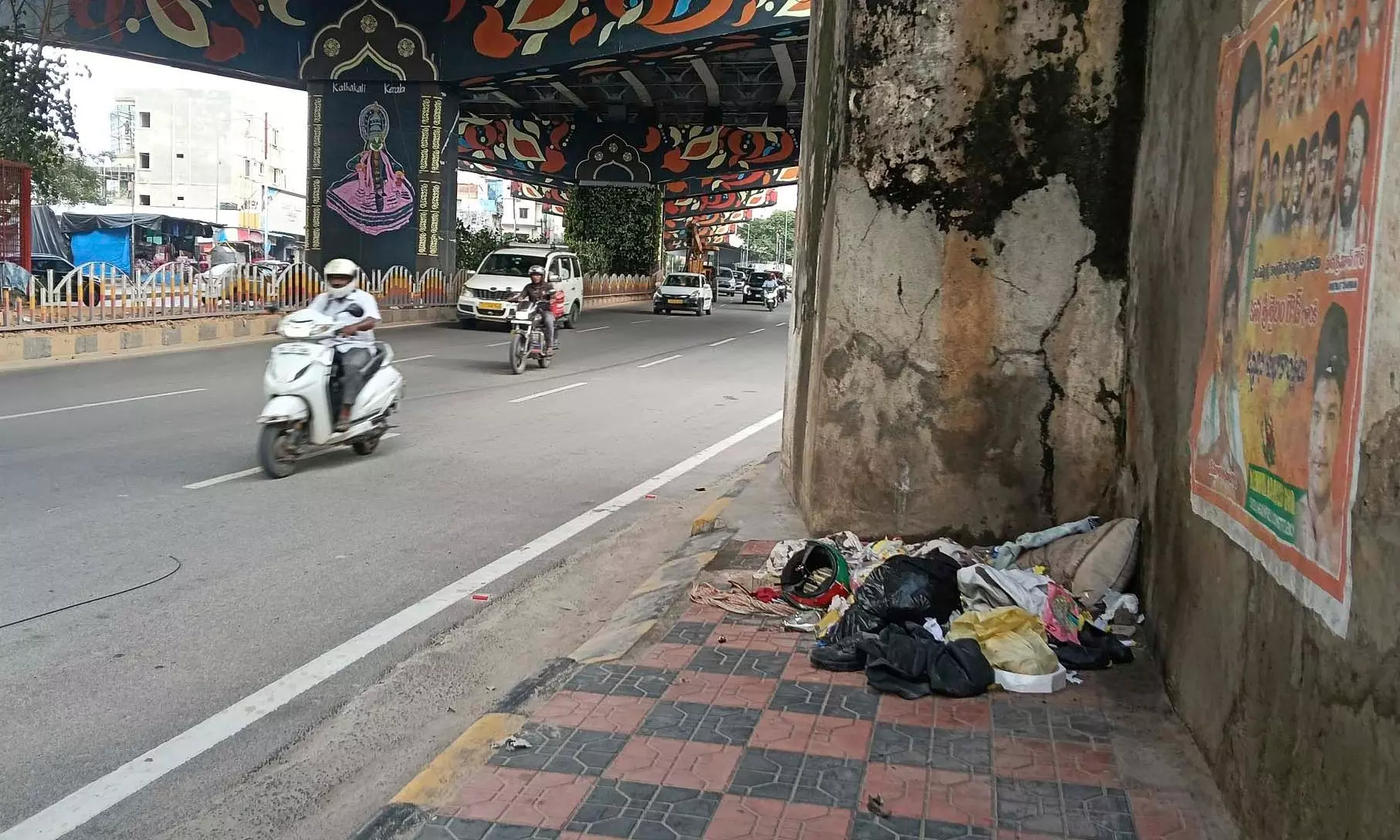
Hyderabad: Hyderabad Metro says the same line every few minutes, and the station attendant repeats the same, but almost all of it hits a wall. Let passengers exit first. Step behind the yellow line. Keep the station clean. Don’t stand near the door. Yet, a hand reaches for the door before it opens, people rush in before others get off the train, and queues are a myth. The rule is known, still the rule goes missing, so much so that even having station attendants doesn’t help it. Srinivas, who works at Ameerpet station, calls it entitlement.
“People buy a ticket and act like the platform is theirs and they crowd the doors when trains arrive. They wouldn’t listen,” he says, adding, “Even the educated ones, in fact especially them, act like rules don’t apply.” He also notes that while no one really throws trash on the tracks, spitting is routine. “Dustbins are used, yes, but that’s the bare minimum. We end up feeling grateful for what should be basic.”
Necklace Road and Sanjeevaiah Park look calm at sunrise, so green, filled with birds, bats and all kinds of small animals. However, one evening party and the grass gets a carpet of paper plates and cups. On roads, Shravani Ponnala, who rides a two-wheeler, says garbage piles force lane changes and fear. “Once I saw a GHMC bin turned over. And more often than not, bikes get on footpaths. Like, why even do that? This is so basic, let people walk, Hyderabad is already unwalkable.”
Heritage, too, gets defaced by carvings of names by people. Only Charminar stays safer, possibly because there is nowhere to hide, adds Shravani. That impulse to act only when unseen shows up elsewhere. Men find a corner to pee even when a public toilet is near. These are indications of the lack of civic sense among citizens and perhaps the most ironic of them could be seen at Nizampet near JNTU, which has a heap of garbage lying under a sign that threatens a Rs.2,000 fine for garbage dump.
“People want to board first and don’t allow people to deboard,” said Riddhi, a student, “Everyone in India has a strange “me-first” tendency and that is probably how these things will never change.” Riddhi rightly points out individualism among Indians. They behave when abroad and forget at home. The moment the social gaze is stronger, manners improve. The moment it fades, habits return.
Experts note that people know what is right to do but too often choose convenience over rule-keeping and that ignorance is not the issue. Enforcement tries to close the gap like GHMC’s enforcement teams and the Command Control and Monitoring System have been issuing e-challans for roadside dumping, encroachment, littering and spitting. But behavioural folks will note that punishment certainty often beats punishment size, which is why visible action matters.
That visibility lesson shows up in Singapore’s Corrective Work Orders, where fines remain steep and predictable. People understand that rules will be enforced and that an audience exists. Japan offers a different route through daily habits and community engagement. Students take part in souji, routine cleaning tied to non-cognitive learning, and end-of-term o-soji builds the muscle of looking after shared space. Research links the practice to a sense that no one else will sweep up after you, which lowers littering over time.
Rama Bhadra, who runs a Japan hub in Hyderabad and has lived there for over two decades, says, “Smokers used to carry pocket ashtrays in the 1980s and children kept wrappers in their bags until they found a bin.” He adds that money isn’t the blocker because people who can afford to keep houses spotless by hiring help still toss plastic out of car windows. “Self-discipline is the piece to borrow here. You will not find dustbins everywhere in Japan; people usually carry trash back home to dispose of it. The point is not to litter, to keep the country clean.”
In India, Chandigarh shows what enforcement does to habits. AI-assisted cameras issue most challans, helmets are policed and red-light jumping gets flagged and fined. The sense that violations will be caught changes how riders approach signals. Similarly, Meghalaya’s Mawlyngnong village has earned the tag of the cleanest village in India, which proves that money and resources are never the factor.





